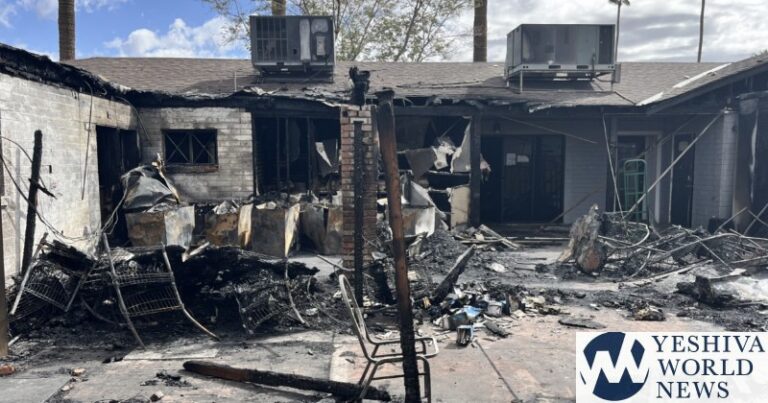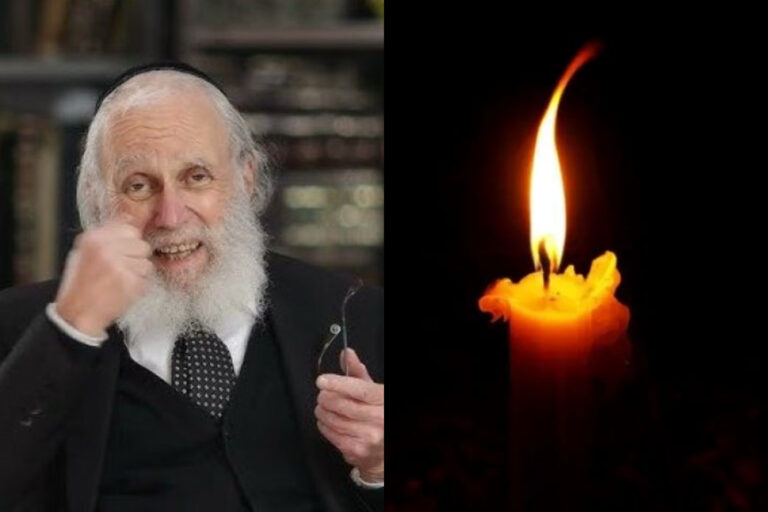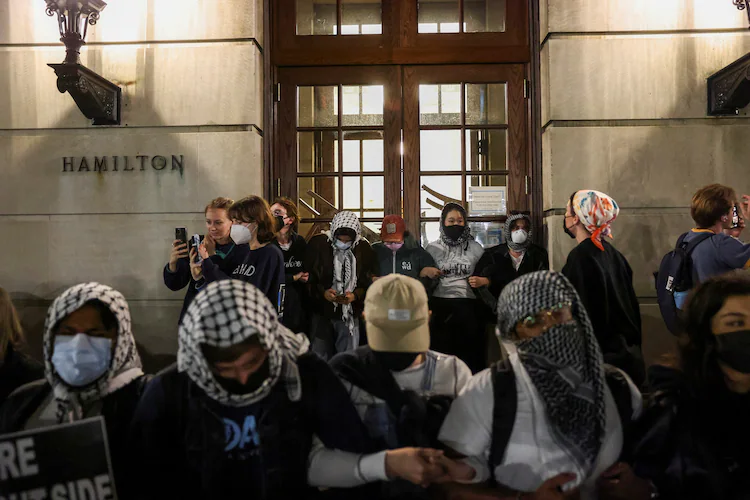 In response to the crisis caused by the Russian invasion of the fledging Georgian democracy this past weekend, an emergency meeting was called on Monday evening by the Vaad LeHatzolas Nidchei Yisroel and Agudas Yisroel at the home of the Vaad Chairman, Barry Hertz. The situation was evaluated by those who attended the meeting who heard a report from Rabbi Ariel Levin, the official Chief Rabbi of Georgia, who has just left Tblisi the capital of Georgia.
In response to the crisis caused by the Russian invasion of the fledging Georgian democracy this past weekend, an emergency meeting was called on Monday evening by the Vaad LeHatzolas Nidchei Yisroel and Agudas Yisroel at the home of the Vaad Chairman, Barry Hertz. The situation was evaluated by those who attended the meeting who heard a report from Rabbi Ariel Levin, the official Chief Rabbi of Georgia, who has just left Tblisi the capital of Georgia.
The Vaad L’Hotzolas Nidchei Yisroel runs outreach operations in five cities throughout Russia including Baku, Kishinev, Kuba, Petersburg as well as Tblisi. The Vaad l”Hatzolas Nidchei Yisroel was founded in the early 1980’s for the purpose of restoring traditional Jewish life and culture in the countries that were formerly part of the Soviet Union.
The Vaad enjoys a wide range of support throughout the Jewish community. “We are concerned, we are monitoring the developments closely and we are in touch with our people on the ground,” said Vaad chairman Barry Hertz. The Vaad, however, did immediately cancel a scheduled Summer Chizuk and Kiruv Program in Georgia that was to be manned by several Yeshiva students from New York and Israel.
Currently, there are more than 12,000 Jews in Tblisi and the situation is being carefully monitored by the Vaad and Agudah representatives. The Vaad itself has a Yeshiva in Tblisi with over 150 students, as well as a Kollel and five Shlichim still currently at their post. Eight students from the Yeshiva in Tblisi have been accepted to Yeshivos of higher learning in Eretz Yisroel and have been planning to travel there to study for the year. Kiruv operations in Tblisi have ceased on account of the crisis, but it is anticipated that they will start up again once the crisis has passed.
“There are currently 300 refugees from the city of Gori, about one hour’s driving distance from Tblisi, that have sought refuge in the country’s capital. A number of these refugees have been taken into the Vaad’s yeshiva in Tblisi,” reported Rabbi Levin to those in attendance of the emergency meeting. The city of Gori was entirely decimated by Putin’s forces. Fifty of the Gory evacuees received visas immediately to travel to Israel as soon as the travel arrangements can be made.
“It must be stressed that the situation in Tblisi has currently stabilized, with no food, water or electricity shortages,” said Rabbi Mordechai Neustadt, founder and honorary Chairman of the Vaad. At the meeting, however, Rabbinic and lay leaders outlined contingency plans in case, chalilah, the situation deteriorates further. The Vaad currently has a soup kitchen in operation, and plans were made to expand operations should the need arise. “The Vaad budget in Tblisi is approximately $55,000 per month – this includes, of course, education, housing and food costs borne in the soup kitchen,” said Rabbi Boruch Lovett, the executive director of the Vaad.
In addition to expanding the soup kitchen operations, contingency plans were discussed for the following issues: Obtaining visas, transporting, and locating a camp or Yeshiva situation for 150 children in Tblisi in Eretz Yisroel; logistics of transportation and housing for refugees in a worst case scenario; establishing liaisons with government and or other Jewish organizations to establish joint operations and programs; and establishing an infrastructure for emergency fundraising should the worst case scenario develop.
Mordechai Avigdor discussed the political situation behind Russia’s sudden invasion and a call was made at the meeting to Congressman Anthony Weiner where Vaad leaders requested Mr. Weiner to obtain a report from the Georgian Desk at the State Department. “Basically, Georgia is Russia’s version of our Cuba, ” said Mordechai Avigdor. Foreign policy experts say that part of the reason Russia responded so forcefully to Georgia’s attempt to take back South Ossetia is that the United States and Europe had been asserting themselves in Russia’s backyard. This has served to alienate Moscow by supporting Kosovo’s bid for independence. Russia has also been angry about American plans to put a missile defense system in Poland, and by American moves to encourage Georgia and Ukraine to join NATO.
In discussing the crisis, United States President George Bush stated that it appeared Moscow sought to overthrow the elected government of Georgian President Mikheil Saakashvili, and warned a “dramatic and brutal escalation” of Russia’s push into the smaller country would jeopardize relations with the West. “Russia has invaded a sovereign neighboring state and threatens a democratic government elected by its people. Such an action is unacceptable in the 21st century,” Bush said. Moscow has thus far snubbed all Western pleas for a cease fire, while the situation on the ground has gradually gotten progressively worse.
“Thus far, food supplies in all the supermarkets are being hoarded, but there are no current shortages,” was the report heard from the Shlichim in Tblisi as reported by Rabbi Levin. Rabbi Levin, who was born in Tblisi travels back and forth between Tblisi and Jerusalem. His most recent trip to Tblisi ended just before this past weekend. Rabbi Levin, however, is in daily touch with each of the Shlichim. The question will be posed to the Gedolei Yisroel on Tuesday as to what to do with the five current Shlichim in Tblisi in the event that the situation deteriorates.
At the meeting, Rabbi Shmuel Blum, of the executive committee of Agudas Yisroel, stressed the importance of laying down the communications infrastructure with the State Department and to inform them about the Vaad’s staff and their safety concerns. Agudah staff members were contacted to alert their contacts in the State Department. One Vaad Shliach has already left Georgia through Armenia by automobile and travelled to Israel.
“The status in Georgia is currently a developing situation, and it is anticipated that, in the event of any further deterioration funding will be needed to address needs of food, transportation and housing. The soup kitchen operations have already been stepped up,” remarked Rabbi Lovett. Those who wish to donate to the fund can call (718) 252-5974 or send a check to “Vaad Hatzolah Nidchei Yisroel” at 1566 Coney Island Avenue, Brooklyn, NY 11230. The envelope should be marked “Georgian Relief Fund.”
(YWN Desk – NYC)











One Response
They should try calling chabad they are in georgia as we speak their phone number is available at chabad.org